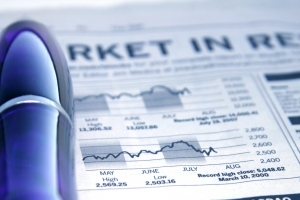Lately, we’ve been hearing more and more about the risky nature of investing in the tar sands. That’s not surprising given how expensive it is to produce tar sands oil. This past year, the financial risk has been highlighted three times as major projects have been shelved by companies — Shell, Total, and Statoil –with deep pockets. And those projects were cancelled mostly before the recent downturn in the price of oil.
Now that oil prices have taken a nose dive, the tar sands are looking even less viable. A new report, released yesterday by the Carbon Tracker Initiative found that 92 per cent of new tar sands projects need the price of oil to be at least $95 per barrel in order to justify such risky investments. The price of Brent crude oil closed at $82.12 yesterday. The report’s authors suggest that shareholders of other companies should question why their projects are still being developed rather than abandoned, when the cost of oil isn’t high enough to justify the investment.
On top of the cost risk, a different shareholder risk was in the spotlight again this week as the UN-backed Intergovernmental Panel on Climate Change (IPCC) released its report on the science and economics of climate change. The IPCC report reinforced an earlier finding that, in order to keep average global temperature from rising to dangerous levels, at least 75 per cent of the known fossil fuel reserves need to stay in the ground.
The share price of an oil company is affected by many things but one of the biggest influences is its oil reserves, the amount of oil that is in the ground but that a company can economically drill and recover. What happens to oil companies’ share prices when investors realize that three quarters or more of the companies’ assets must stay in the ground and, from an investment point of view, are essentially worthless? (This situation, when companies having an inflated value because their fossil fuel reserves are overvalued, is sometimes referred to as the “carbon bubble.”) Companies and their shareholders should expect a pretty big hit to their bottom lines in the future.
This “carbon bubble” warning to coal, oil, and gas companies and their investors isn’t just coming from climate scientists. Leaders in finance have also been raising the alarm. Last month, Mark Carney, the governor of the Bank of England, told a World Bank seminar that avoiding dangerous levels of global warming means that the “vast majority of reserves are unburnable.”
These two risks — the vulnerability of oil reserves and the cost risk — are highest for companies in Alberta, given that oil from the tar sands is significantly dirtier and more expensive than conventional oil. Around the globe, a growing movement is divesting from the tar sands and other fossil fuels. The movement is driven by concerns for our shared climate, which of course is also the motivation for Environmental Defence’s work.
But as the Carbon Tracker report makes clear, there are financial reasons to divest as well, which is why the Carbon Tracker suggests that companies, pension plans, and funds move their money out of the tar sands. This is one of the many instances where economic and environmental interests are aligned. Shareholders holding stocks in companies operating in the tar sands should heed the warning, expect more projects to be cancelled, and rethink where they’re putting their money.
Environmental Defence is co-sponsoring a Canadian tour for James Leaton, research director at Carbon Tracker. He will be speaking in Calgary, Edmonton, Ottawa, and Toronto the week of November 24th-27th.



